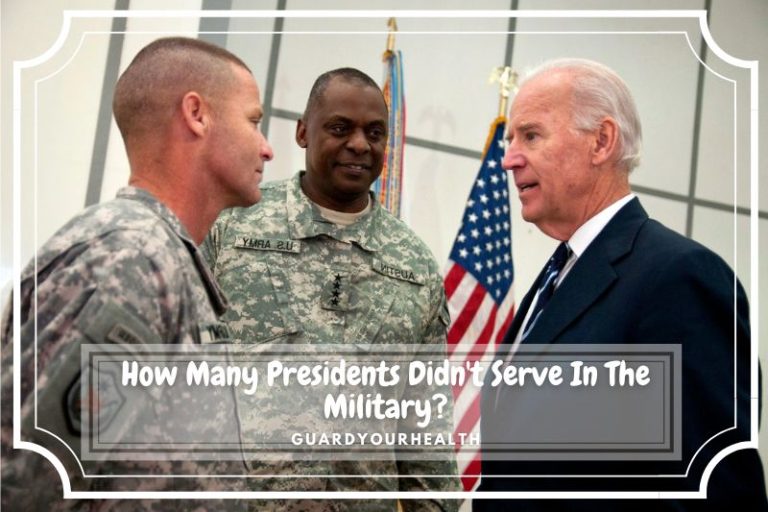How Many Presidents Did Not Serve In Military?

The history of the United States is marked by a series of leaders who have shaped the nation in various ways. One fascinating aspect of this history is the military background of the presidents. Many citizens often wonder, how many presidents did not serve in military? This question leads to an intriguing exploration of the factors that contribute to a person’s eligibility for presidency, including military service. Throughout American history, the presidency has been held by individuals with diverse backgrounds, experiences, and qualifications. While military service has been a common aspect of many presidents’ lives, it is not a requirement for the highest office in the land. This article will delve into the statistics and stories behind the presidents who did not don the uniform.
Understanding the significance of military service in presidential history can provide insights into the qualities and experiences that these leaders bring to their roles. As we examine the presidents who did not serve in the military, we will uncover the various paths that led them to the White House. From political backgrounds to business ventures, the journeys of these leaders showcase the vast array of experiences that can prepare an individual for presidency.
Ultimately, the question of how many presidents did not serve in military leads us to analyze the broader implications of leadership in America. It challenges the notion that military experience is essential for effective governance and opens up a dialogue about the qualities that truly define a successful leader. Join us as we explore this captivating topic and reveal the names of those presidents who took a different route to the White House.
How Many Presidents Did Not Serve in Military?
As of now, there have been 46 presidents of the United States, and out of these, a notable number did not have military experience. To be precise, there are 15 U.S. presidents who did not serve in the military. This figure may surprise some, as military service has been a hallmark of many prominent leaders throughout American history.
Who Were These Presidents Without Military Service?
The list of presidents who did not serve in the military includes some well-known figures. Here’s a comprehensive list:
- John Adams
- Thomas Jefferson
- Martin Van Buren
- Grover Cleveland
- Woodrow Wilson
- Calvin Coolidge
- Herbert Hoover
- Franklin D. Roosevelt
- John F. Kennedy
- Lyndon B. Johnson
- Richard Nixon
- Jimmy Carter
- Ronald Reagan
- Bill Clinton
- Joe Biden
What Factors Contributed to Their Non-Service?
Several factors may have influenced the lack of military service among these presidents. Some of the most common reasons include:
- Age during major conflicts
- Political careers that took precedence
- Health issues
- Personal beliefs or values regarding military service
- Alternative paths to leadership through education and public service
How Does Military Service Impact Presidential Leadership?
Military experience is often viewed as a valuable asset for presidential leadership, providing insights into national security and defense. However, the absence of military service does not necessarily indicate a lack of competence or ability to lead. Many presidents have proven effective in their roles without having served in the armed forces. The key to successful leadership often lies in:
- Decision-making skills
- Ability to communicate and unite people
- Experience in governance and public policy
- Understanding of the needs and concerns of citizens
What Lessons Can Be Learned From These Presidents?
Exploring the stories of presidents who did not serve in the military provides valuable lessons in diversity of experience and leadership styles. Some of the notable takeaways include:
- Leadership can come from various backgrounds, not just military.
- Presidents can draw on different experiences to make informed decisions.
- Empathy and understanding of civilian life can be as important as military experience.
Are There Any Common Traits Among Them?
Despite their lack of military service, many of these presidents exhibited common traits that contributed to their effectiveness as leaders. These traits include:
- Strong communication skills
- Strategic thinking
- Resilience in the face of challenges
- Commitment to public service
How Has Public Perception of Military Service Evolved?
Over the years, public perception regarding the importance of military service in presidential candidates has evolved. While some voters prioritize military experience, others emphasize leadership qualities, vision, and the ability to address pressing issues. This shift highlights the changing landscape of political expectations and the diverse backgrounds of candidates in contemporary elections.
What Does the Future Hold for Presidents Without Military Service?
As the nation moves forward, the question of how many presidents did not serve in military remains relevant. With an increasing number of candidates emerging from varied professional backgrounds, the potential for future presidents without military experience is significant. This diversification can lead to innovative approaches to governance and an emphasis on diplomacy and collaboration over military action.
In Conclusion: The Broader Implications of Leadership
In summary, the exploration of how many presidents did not serve in military reveals a rich tapestry of leadership styles, experiences, and qualities. The presidents who took alternative paths to the White House prove that effective leadership is not confined to military service. As we continue to engage in discussions about the qualities that define a great leader, it is essential to recognize the value of diverse experiences in shaping the future of the nation.
ncG1vNJzZmivp6x7o77EnKKepJxjwqx7yaiqrKaVrMBye8eormalkaPGbrzRnqqinJWjwbR5w6KbZqafqXq0sdGvnGahnmK6qrjIrZirsV6dwa64
